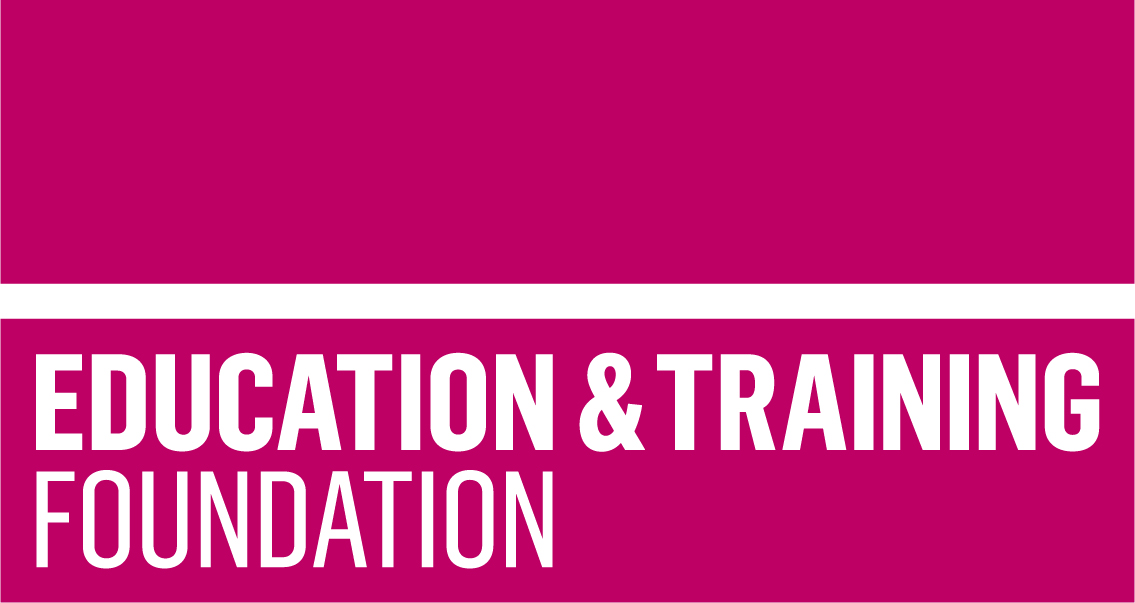How QTLS opens doors for FE teachers

Whether to improve their career prospects, get the recognition they deserve or just to become a better practitioner, more FE teachers and trainers are achieving QTLS (Qualified Teacher Learning and Skills) status.
QTLS is the badge of professionalism for the further education and training sector, gained by more than 20,000 teachers and trainers since its introduction in 2008. It is conferred by the Society for Education and Training (SET), with almost 90 per cent of those with QTLS status saying it has a positive impact on both students and their practice.
Abigail Pannozzo is a 26-year-old art and design teacher at Thomas Rotherham College in South Yorkshire. She first heard about QTLS from her PGCE tutors at Sheffield Hallam University.
“The tutors were saying we needed to apply for QTLS once we’d finished. None of us had heard of it before. But they said it’s well recognised, it only takes around six months and you can do it alongside teaching. They were talking about it in a really positive manner,” she says.
QTLS is legally the equivalent of Qualified Teacher Status (QTS), meaning anyone with QTLS and a PGCE in post-compulsory education or equivalent can teach in a secondary setting, too. No wonder teachers and trainers say that it “opens doors”.
QTLS: ‘Become a better all-round teacher’
But for Abigail, achieving QTLS status was something she wanted to do for herself - to become a better all-round teacher. Her college recognised it was a good thing to do and paid the fee to register her - a wise investment considering it now benefits from Abigail’s increased confidence and dynamism in the classroom.
Abigail liked how QTLS encouraged her to share ideas and observe other departments and teachers. She wasn’t used to the written element of documenting her progress, but eventually found that it helped her reflect on her practice.
Her entire department embraced what she was doing, and the resources she made during her professional formation have since been shared around the college, held up as examples of best practice.
For 49-year-old Darren Bolton, applying for QTLS meant having his status as an experienced teacher professionally recognised. He became a programme leader at Newcastle College after a 22-year career as an engineer in the Royal Air Force.
“Two of the subjects I enjoyed teaching there were engineering and mathematics, and I reached a point where I thought I’d like to have a go at teaching them in secondary,” he recalls.
The programme made him evaluate his teaching practice with a level of detail that initially surprised him, with observations, meetings with a mentor, strategy reviews, evidence gathering and data provision, all of which formed a portfolio that was externally verified.
“Reading research helped me to develop practices that were backed up with evidence,” says Darren. “I’ve always had an interest in computers and read research linking the use of information and communications technology (ICT) and student achievement. So as a result of QTLS, I now embed ICT into many of my lessons.”
Calvin Maye has also found QTLS empowering. The 39-year-old coaches Oxford United’s under-16s team, and, after qualifying as an FE teacher, he didn’t see himself in a desk job. But his ICT knowledge, gained in his previous career in finance, steered him towards a job training FE staff on various management information systems.
After work, he would head off to the training ground feeling frustrated. “I was missing out on the buzz of being part of someone’s learning journey and helping them to achieve something,” he recalls.
The chance to teach in secondary school
So it was a “no brainer” to do QTLS, both for the job opportunities it would give him and the chance to further his teaching knowledge. He completed it in six months, and was able to use his football coaching as well as his college role as the focus of his studies.
“From working with an experienced mentor, and even looking through your portfolio at the diagnostic tools it gives you, it really opens your eyes in terms of making sure your main focus is on those people sat in front of you,” he says.
Calvin says QTLS not only strengthened the parts of his practice he felt less secure about, but it also made him look and think again at ways of improving areas he’d always felt good about.
“I always thought I did analysis and evaluation really well,” he says, “but the QTLS really opened my eyes into how reflective I could and should be, and what benefits and knock-on effects that can have on my learners.”
Calvin can hardly believe the difference between the teacher he was before and the practitioner he is now with QTLS under his belt. “I thought I was an alright teacher,” he says.
“It wasn’t until QTLS, when I broke down what I was doing methodically, through the well-structured online portfolio, working with a mentor and asking questions, that realised I was actually just scraping the surface.”
“I look back at some of lessons I delivered before and think, ‘Wow, I should really have been doing this, I should have been doing that’ - it just gives you so much more confidence when you’re planning, and when you’re delivering you actually have enough knowledge to do your best for those kids.”
In a serendipitous turn of events, Calvin now teaches PE at Brackenhale Academy in Berkshire, the secondary school he attended 22 years ago. It’s a job he would never have got without QTLS.
QTLS ‘should be mandatory’
Abigail is thinking about taking her professional formation a step further with a master’s degree in education, while Darren decided to take a road less travelled: teaching maths and physics at a secondary school in China, which he can do with the security that QTLS gives him more options when he returns.
All three of the teachers find that QTLS has enhanced their knowledge, skills and confidence, while setting them on the pathway to progress in their careers. Darren was so impressed by QTLS that he thinks all FE teachers and trainers should apply.
“It’s so worthwhile doing it,” he says, “even if it’s just a form of reinforcement. In the long run, I think it should be mandatory - you’d develop even better quality teachers working in the FE environment if you did that.”
Russell Parton is a freelance journalist
Find out more about QTLS here. You need to be a member of the Society for Education and Training (SET) to register for QTLS, so join SET now.
